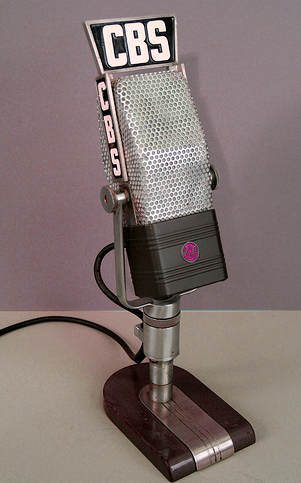Brian Anderson, who is currently doing play-by-play for the TBS coverage of Game 5 of the ALDS between the Rays and the Yankees, is not terrible.
He’s just not worth paying attention to. Yet he’s considered to be a star for Turner Sports and in baseball in general. His regular gig is doing TV for the Milwaukee Brewers, and he’s won awards. He also calls both college basketball and NBA games.
He has a good voice. It’s inoffensive, with a nice tone, and he enunciates well. It’s just bland. It’s the prototypical sports announcer voice. I couldn’t pick him out of a audio lineup from any of a dozen of his colleagues.

And he doesn’t say anything really interesting, though, like most modern baseball announcers, he appears to believe he gets paid by the word. Dead air is their worst enemy. So they have to chatter endlessly, even when there’s nothing worth saying, which is most of the time. So we get a non-stop stream of banalities, meaningless trivia, and non sequiturs like “San Diego. Military town. Lots of Yankee fans.” I mean, what the hell is that about? Military people like the Yankees? San Diegans are closet Yankee fans? What does it mean? Ultimately, nothing. It’s just a stream of consciousness meant to fill time, because just letting us watch the game would be boring, I guess.
I’m picking on Anderson, but he’s just representative of the modern, low-risk, professional sports announcer. They’re pretty much all like that. It’s worse on TV, too. Radio at least has some old guys still working, like Bob Uecker (ironically, in Milwaukee).

I suppose on radio it makes some sense to be more verbose. We can’t see the game, so some additional detail might be warranted. But then I think of Ernie Harwell, the Tigers’ longtime radio announcer on WJR in Detroit. To call Ernie a “play-by-play announcer” would be an injustice. Sure, he told you what was happening in the game, but he also just talked baseball. He was his own color commentator, despite having Paul Carey (another great radio voice) in the booth with him. Ernie and Paul traded three inning shifts: Ernie did the first three, then Paul the middle three, with Ernie bringing it home in the 7th, 8th, and 9th. (If the game went to extras, Paul did the first three, Ernie the next, and so on.) They rarely talked to each other during their innings. Paul was also the on-site broadcast engineer, so he was in the booth, but they didn’t talk to each other much. Certainly Paul didn’t feel like he had to fill all of the dead air like so many color guys do today.
Another legend was Vin Scully with the Dodgers. I only heard Vin when he was working national baseball games for NBC or football for CBS, but late in his career (which ended in 2016 after 57 years calling games for the Dodgers both in Brooklyn and Los Angeles) I got to hear him on the MLB.TV app. Even in this modern era, Scully called the first couple of innings on TV by himself, and it was glorious. Scully talked only when he had something worth saying. Even his description of the actual game activity was sparse compared to today’s style. And if he had nothing to say, you’d get to enjoy the crowd and other background noise. It was very much like being at the ballpark, where the modern approach reminds me of sitting next to two noisy fans who comment on every pitch of the game and won’t shut up.
I don’t dislike Brian Anderson. I don’t know him. He’s probably a very nice person with a great family, helps little old ladies across busy streets, gives generously to charity, and certainly has never had a bad word to say about anyone – unlike me. He’s just exhausting to listen to.
Fortunately my remote has a mute button.
